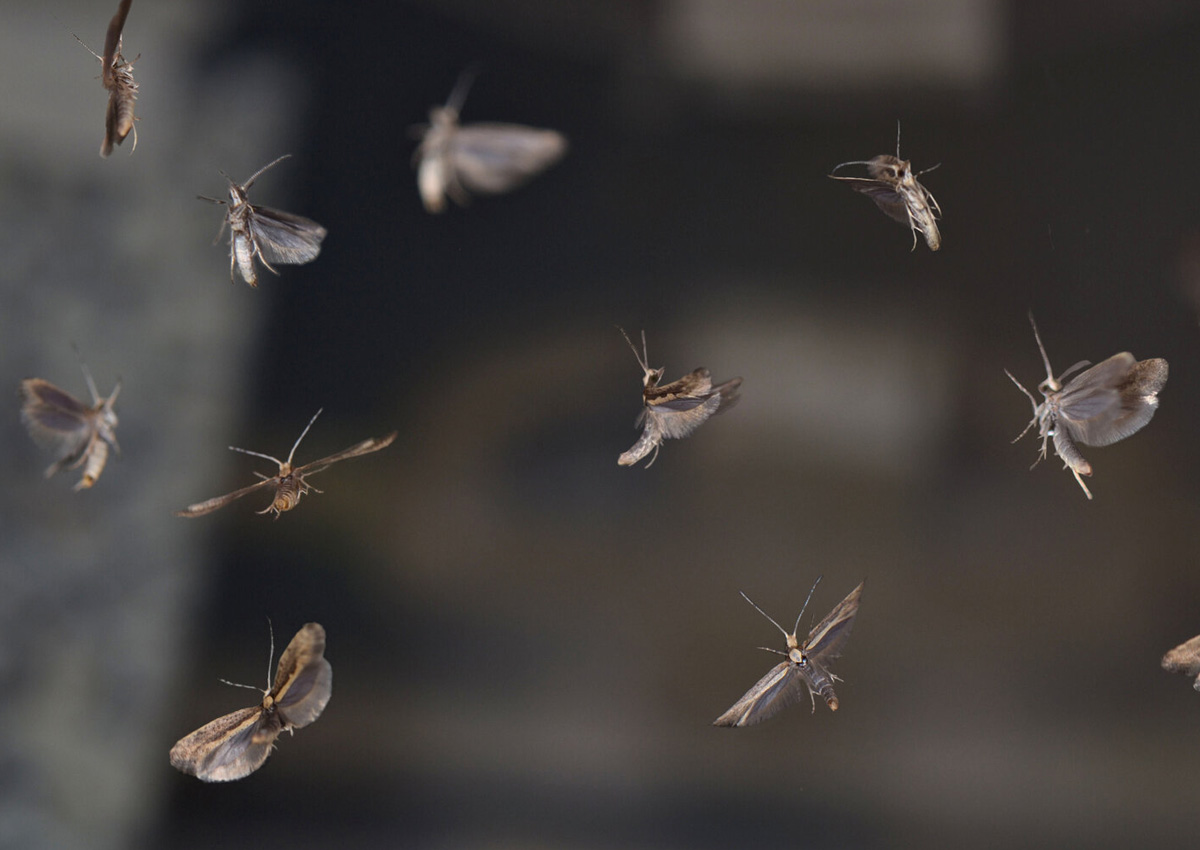
Genetically Engineered Moth Open Field Tests Reported As A Success
February 5, 2020| |
The first-ever open field-release of a self-limiting genetically engineered diamondback moth has been reported as a success. The new strain of diamondback moth developed by Oxitec Ltd. is modified to control its pest counterparts in the field. The Cornell University study led by Professor Anthony Shelton showed the engineered strain had similar field behaviors to unmodified diamondback moths, with results offering promise for future protection of farmers' brassica crops.
After their release, males of the modified strain find and mate with pest females, but the self-limiting gene passed to offspring prevents female caterpillars from surviving. With sustained releases, the pest population is suppressed in a targeted, ecologically sustainable way. After releases stop, the self-limiting insects decline and disappear from the environment within a few generations.
Professor Shelton's team used field and laboratory testing, as well as mathematical modeling to gather relevant information on genetically engineered strain of diamondback moth, whose wild counterparts cause billions of dollars in damage. The study was the first in the world to release self-limiting agricultural insects into an open field.
The field test builds on previously published work in greenhouses by Professor Shelton and colleagues that showed sustained releases of the self-limiting strain effectively suppressed the pest population and prevented resistance developing to an insecticide. "Our research builds on the sterile insect technique for managing insects that was developed back in the 1950s and celebrated by Rachel Carson in her book, Silent Spring," reports Professor Shelton. "Using genetic engineering is simply a more efficient method to get to the same end."
For more details, read the news release from Oxitec.
| |
You might also like:
- Biotech Moths to be Field Tested in NY
- Diamondback Moth Genome Gives New Clues for Sustainable Pest Management
- GE Diamondback Moth to Decrease the Pest's Population
Biotech Updates is a weekly newsletter of ISAAA, a not-for-profit organization. It is distributed for free to over 22,000 subscribers worldwide to inform them about the key developments in biosciences, especially in biotechnology. Your support will help us in our mission to feed the world with knowledge. You can help by donating as little as $10.
-
See more articles:
-
News from Around the World
- Zimbabwe Lifts Ban on GM Corn Imports
- Farmers in North Western Uganda Upbeat about Disease Resistant GM Cassava
- BTI Scientists A Step Closer to Chilling Tolerant Corn
- Genetically Engineered Gut Bacteria Boost Honey Bees' Immunity, Limit Pathogens
- Cuba Produces Biotech Sweetener
- EPA Regulatory Review: Glyphosate Has No Human Health Risks
- New Video Series Highlights Clamor of Filipino Farmers for Bt Eggplant
- Genetically Engineered Moth Open Field Tests Reported As A Success
-
Research Highlights
- Scientists Improve Antioxidant Content of Maize
-
Plant
- Experts Develop a Simple and Efficient Cloning System for Genome Editing in Rice
-
Read the latest: - Biotech Updates (February 18, 2026)
- Gene Editing Supplement (January 28, 2026)
- Gene Drive Supplement (February 22, 2023)
-
Subscribe to BU: - Share
- Tweet

